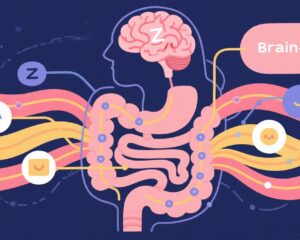Highlight
Cardiologists frequently recommend lifestyle modifications, particularly whole-food, plant-based diets and physical activity, to prevent cardiovascular disease. However, personal adherence to such recommendations among cardiologists is remarkably low, with only 8% following a whole-food, plant-based diet despite 41% recommending it. Physical activity adherence fares better but remains inconsistent, and issues such as lack of lifestyle medicine training and professional stress contribute to these gaps.
Study Background and Disease Burden
Cardiovascular disease remains the leading cause of mortality in the United States since 1918, imposing a significant clinical and public health burden. Lifestyle factors such as diet, physical activity, smoking, and stress management are critical modifiable contributors to cardiovascular risk. Extensive evidence supports that diets low in cholesterol, saturated fats, sodium, sugar, and refined grains while rich in plant-based foods—beans, nuts, seeds, fruits, vegetables, and mushrooms—can substantially reduce cardiovascular morbidity and mortality. Physicians, especially cardiologists, serve as key messengers for these recommendations, but little is known about their personal compliance with lifestyle medicine principles and barriers they face in clinical practice.
Study Design
Kim A. Williams Sr, MD, and colleagues conducted a cross-sectional survey study published in the Journal of the American College of Cardiology in 2025. Between June 14 and July 11, 2024, 525 members of the American College of Cardiology (ACC)’s CardioSurve panel were invited to participate. A total of 166 cardiologists completed the survey, answering detailed questions on their formal training in lifestyle medicine, personal dietary habits, physical activity levels, sleep patterns, alcohol and tobacco use, and attitudes toward lifestyle counseling for patients. The survey also explored barriers to personal adherence and patient counseling, as well as professional challenges affecting lifestyle integration.
Key Findings
The study revealed several critical findings:
1. Training Deficit: A significant 87% of respondents reported no formal education in lifestyle medicine during their medical training. This lack of foundational knowledge likely impedes full integration of lifestyle principles into both personal and clinical practice.
2. Discrepancy Between Recommendation and Practice: Although 41% of cardiologists frequently recommended a whole-food, plant-based diet to patients for cardiovascular prevention, only 8% reported personal adherence to this diet.
3. Barriers to Dietary Adoption: Reasons for low adherence included habitual taste preferences, insufficient familiarity with plant-based diets, and external marketing influences. When recommending to patients, cardiologists expressed concerns about protein adequacy (28%), social/cultural challenges (40%), and patient compliance (63%).
4. Physical Activity: Integration of physical activity counseling into patient care was high (91%), and most cardiologists (69%) met current physical activity guidelines themselves (≥150 minutes moderate or ≥75 minutes vigorous exercise weekly). Strength training adherence was lower at 49%.
5. Sleep and Stress: Average reported sleep duration was 6.8 hours per night; however, 35% expressed dissatisfaction with their sleep quality. While half performed stress resiliency exercises, formal stress management participation was rare.
6. Tobacco and Alcohol Use: Tobacco avoidance was nearly universal (92%), but 69% consumed alcohol, with 34% drinking weekly.
7. Social Well-being: Despite 84% valuing social connections, 69% found maintaining these relationships challenging due to professional demands.
8. Professional Implications: The authors highlighted concerns regarding cardiologist workforce shortages driven by burnout and administrative burden. They emphasized that improved personal health practices—including plant-based diets and exercise—could support longevity and vitality within the profession.
Collectively, these data demonstrate a significant incongruity between cardiologists’ knowledge of and recommendations for lifestyle medicine and their personal health behaviors.
Expert Commentary
Dr. Kim A. Williams Sr, lead author and professor at the University of Louisville School of Medicine, underscored the paradox of physicians recommending lifestyle changes while struggling personally with adherence. He noted the multifactorial barriers, including ingrained habits and cultural norms that affect all individuals regardless of medical expertise.
The survey’s findings align with prior research showing low uptake of whole-food, plant-based diets even among academic physicians and trainees (0.3% adherence reported in a previous survey). This consistent trend points to systemic issues in physician education and workplace environment rather than individual choice alone.
The absence of comprehensive lifestyle medicine training was particularly striking; incorporating formal curricula could empower cardiologists with skills and confidence required to both practice and promote optimal lifestyle changes.
Limitations of the study include potential response bias and its voluntary survey nature, which might have selected more lifestyle-conscious cardiologists. The sample size was modest and geographically confined to the CardioSurve panel, which may limit generalizability.
Nonetheless, the findings prompt reflection on physician wellness, patient counseling efficacy, and the potential impact on cardiovascular disease prevention at a population level.
Conclusion
This study highlights a critical gap between cardiologists’ lifestyle recommendations and their personal adherence, especially regarding diet. Despite cardiologists’ recognition of the importance of plant-based nutrition and physical activity, actual compliance remains low, likely undermined by educational, cultural, and systemic barriers.
Addressing these challenges requires integrated lifestyle medicine education within cardiology training, support for physicians’ personal health, and strategies to overcome sociocultural obstacles both for clinicians and the patients they serve.
Fostering a culture where cardiologists practice what they preach could improve their health outcomes, reduce burnout, and enhance the credibility and effectiveness of their lifestyle counseling, ultimately benefiting patient care and cardiovascular health nationally.
References
Williams KA Sr, Ikram M, Frates B, Theriot P. Dietary and Lifestyle Habits of Cardiologists: Perception vs Practice. J Am Coll Cardiol. 2025 Sep 2;86(9):673-675. doi:10.1016/j.jacc.2025.06.021. PMID: 40866052.
Additional relevant literature:
1. Satija A, Hu FB. Plant-based diets and cardiovascular health. Trends Cardiovasc Med. 2018;28(7):437-441.
2. Michie S, West R, Sheals K, Godinho CA. Evaluating the effectiveness of behavior change techniques in health-related interventions: A systematic review. Psychol Health. 2017;32(7):741-755.
3. Lloyd-Jones DM, et al. Heart Disease and Stroke Statistics—2020 Update: A Report From the American Heart Association. Circulation. 2020;141(9):e139-e596.



